On a cold Autumn morning in Middlesbrough I sat down with Teesside’s rising boxing star Joe Maphosa to talk about his life in boxing and get an insight into what really goes on in the lead up to a fight. We first discussed how Joe got into boxing after moving to Teesside from Zimbabwe.
Q. Background on how you got into boxing when you were younger.
J. With the boxing as a really young kid I didn’t really have any interest in it, I didn’t really watch it back at home in Africa it was always more football and playing with friends. When I came to England a few of my friends were already doing the sport (amateur boxing). What actually happened was I got into a fight at the local park, I was around 11/12 and this guy he really beat me up and I was quite embarrassed because all his friends were there and I thought I could look after myself, and when I left it really got to me so I thought I need to learn how to fight so I can get a bit of respect as well. My friends were already at Middlesbrough ABC boxing academy and I started there aged 13 and I’ve never looked back since.
Q. So that’s the last person to beat you up?
J. Yeah yeah, that’s it yeah I still remember his name but I won’t mention it.
Q. How did it progress from there to being picked to travel with Team GB?
J. To be honest the coaches sorted of noticed my talent straight away, they thought you know he’s naturally got it lets put him in for a fight and so after a few months of training I had my first fight, I was really nervous and didn’t know what to expect then soon as the bell went I just started flowing and I was enjoying myself. When I won the fight I loved it even more and one led to another and another and another and I kept winning and from there the coaches decided to put me into the national championships which were called the National School Boys Championships back then so I entered after my first 4 or 5 fights and I was beating lads who had had 20-30 bouts.
Q. How old were you at this point?
J. I was 13 then, even boxing twice in one day, back then the rules were a bit crazy. I fought one in the morning and won then I fought again around 5pm the same day and won that as well. My first year in the national championships I got to the national final where I came up against another talented lad from a famous gym in London Repton Boxing Club he was strong and that was my first defeat on points. From that national championships I got selected to box for England kids where we boxed against Ireland and Scotland.
Q. So boxing for England what did that entail?
J. Boxing for young England you would go for training camps in different areas around the country, we would do a lot of running a lot of technique work on the pads, the thing that I found the most difficult was being away from family at that age (13/14). The training was hard, everyone was very competitive it was just a bunch of kids working hard trying to make it. Then as I was getting older I started to enter into the national ABA championships (the senior championships) so when I turned 18 I was one of the youngest in the competition and I went right through to the final where I boxed a guy from London and I lost on a split decision. That was my first televised fight on Box Nation TV, it was very nerve racking but I put on a good show, a lot of people actually thought I won that fight. From there I then got selected to go to train with Team GB (the Olympic Squad Rio 2016) to see if I was good enough.
From there the conversation turned to Joe being a part of the Team GB squad in the lead up to the 2016 Olympics in Rio.
Q. Tell us about the trials?
J. They were tough mentally and physically, the coaches didn’t really give much away you would go there for 2/3 day training camps where you would do 3 sessions a day, first session 7am morning track session, second session 10 am strength and conditioning , third session was the boxing the sparring the bags. It was tough because you were competing against another 3 guys at your weight class and they are only taking 1. It was very competitive, in the sparring you were always trying to get the edge, the upper hand. Afterwards you would go home and you would just have to wait for a letter to let you know whether you had made it to the second session. Luckily I kept getting called back and called back and after about the fourth time which took about 6 months they sent me my contract and said congratulations we would like you to join the squad on a part-time podium potential basis.
Q. So what did Part time podium potential mean?
J. Podium squad was there Monday –Friday every week and podium potential were there Thursday to Sunday every other week. Every couple of months there would be a tournament and they would select a squad, so one time you might be going to Belarus or Germany. My first tournament was in Germany in 2015 just before Christmas. We did a mini training camp while we were out there, freezing cold mornings but there was other countries there, Russia, Finland. I drew the number 1 boxer from Germany and I was just thinking I’m going to lose in front of all these coaches and the head of Team GB was there, but luckily I won the fight and won gold in that tournament which caught the eye and from there they wanted me training and on the squad full time. I had a part time job at Poundland so I had to ring them up “I can’t work anymore sorry (laughing)” so from then on I went full time and I was training with the squad the likes of Anthony Fowler and Nicola Adams who had been on the squad 5 years plus.
Q. How close did you get to making the team for the Rio Olympics?
J. When it came down to the selection for the Rio games there was 4 guys (in my weight class), there was myself, 2 guys from London and another guy from Birmingham. The spars were tough, what the coaches would do was send the 4 fighters to tournaments in different countries and select from there so sometimes it was sort of luck of the draw, who would turn up to the tournament you were at, so if you got Cuba you knew you were going to have a tough time. It was all about performing at the right time and not getting injured. With that being said the guy from Birmingham that got picked in the end he was a really good fighter and I think it was a fair result to be honest. We all could have gone to the Olympics and got a medal but at that time he was the front runner.
Q. How did he do?
J. I think he got to second round and then he got drawn up against a Cuban so it was a tough fight for him and he lost. The Cuban he actually boxed I had boxed him in a tournament a few months earlier and lost in a split decision so it was a tough one.
It was at this moment Joe says he wanted to give the professional game a go.
Q. After just missing out on the Olympics is that when you decided to turn professional?
J. How the system works is that it’s like an Olympic cycle so you have to sign for the full 4 years, so after 2016 I had a decision to make whether I stay on and aim for 2020 or do I take my chances and turn pro. So in the end I decided to give it a go in the professional game and that’s when I reached out to Imran Naeem (Joe’s coach) who had a good flock of fighters and the experience and he’s on my doorstep as well so wouldn’t need to travel much so I reached out to him and we sat down had a good chat and he said yes.
Q. Describe the differences between amateur and professional.
J. In the Professional game the gloves are a lot smaller, it’s a lot tougher mentally, there is no headguards. It’s a lot more painful when you get hit and when you hit, when you land on someone else your hands really feel it. The only injuries or niggles I have had I have always felt them after the fight though because of the adrenaline. The pros the speed is a lot slower, in the amateurs you are only boxing 3 rounds so It’s important you start fast and win the first round. In the pro’s you have more time, you’re boxing experienced guys so you can just take the pace down a little bit and obviously we are always looking to knock them out whereas in the amateurs its more about points scoring, hit and move hit and move.
Joe gives me the details of his next fight which you can find in full at the end of the article, he talks about it being his first 8 round contest which he is looking forward to. From this we move onto his preparation for fights and what really goes on in training camps.
Q. Whats a typical preparation for a fight look like, months/weeks/days away?
J. Months away leading up to the fight we wouldn’t do much sparring, more general fitness, swimming , bikes or a run. As we get closer we focus on pad work with my coach, and we start working on the tactics and opponent details.
By middle of camp we get the sparring in and we start stepping it up from 6 rounds to 8 round spas with really good prospects and sparring partners. Closer to fight week it’s all about weight management, I start trimming on the food, that’s the worst bit. I need to start making sure we are at the right weight. I have a really sweet tooth so I’ve started enjoying the protein bars now, they are really low on sugars, really low on fat but they have the calories there so if I fancy something sweet I stick to that or some fruit or a yogurt, I just need something to replace that sweetness, but it’s tough it really does get tough. Throughout the 8 weeks leading up to a fight I won’t have a takeaway, I won’t have pop, I won’t have a chocolate bar so I always look forward to after the fight where I can go a bit wild. I usually give myself a week after the fight to just have anything I want.
Q. What’s the go to meal after a fight?
J. I do like a Chinese or sometimes just the local pizza shop but chocolate is the main thing for me, I do enjoy it. The dieting is strict and hard, me and my partner have started to do fakeaways where we can make healthier version of our favourites.
Q. Does you partner do the dieting with you?
J. Sometimes yeah she tries but sometimes she doesn’t and I will walk in the room and her and my daughter are having a pizza and I’m thinking I need to go upstairs, and I have done that a few times before actually where I will just go sit upstairs, it’s a bit like torture. But because I have been doing it for so long and I always think to myself after I have done this properly and fought I can have anything I want so that makes it sweeter.
Q. Days leading up to a fight?
J. It’s more about relaxing, making sure you are conserving your energy. We do as little as possible in the gym, we do just enough to keep me sharp and on my toes, doing a little of skipping, a little bit of shadow boxing and some fast work on the pads with my coaches with good rests and stretches in-between. From there I will go home and do either an ice-bath or a warmish bath with some salts in there to manage the weight.
Q. Has there been a time close to a fight where you are panicking because you don’t think you will make weight?
J. To be honest because the body holds a lot of water as long as you are well hydrated you have room to play with, it’s when you aren’t hydrated you haven’t done it properly. Some fighters will try and cheat and have a takeaway then go for a jog with a sweatshirt on but that’s trying to cheat the system, if you do it right and drink your 4 liters of water a day when it comes to fight week all it’s about is managing the water.
Q. So how detailed do you go into tactics or do you leave that to your coach?
J.I let my coach do a lot of the watching, he’ll come up with the gameplan. I will watch a couple of videos but that’s it because you can get trapped into a way of thinking and you’re watching someone and you think oh he’s going to box like that on the night and if they don’t you might not be able to perform well, so I watch maybe 2 fights and then I just listen to my coach, he’s always said as long as my preparation is good then everything will work out.
Q. Has there ever been a time in a fight where you are in the middle of the ring and you have just completely gassed out?
J. In the pros no. In the amateurs when I first started off definitely, the reason why is because in the amateurs you get weighed in and then you might fight an hour or 2 after so I got weighed in and just being a daft lad back then with no experience I was eating loads in the changing room, stuffing my face with pasta and about 3 bananas eating crisps, chocolate thinking I’ve made weight now it’s all good. When I got into the ring I felt so bloated so heavy and moving around after round 2 I thought I can’t do this I can’t do this but I just had to hang in there really, I tied my opponent up hit him while I could but I just felt so uncomfortable and I lost that fight as well, but it gave me valuable experience on just taking it easy before the fight.
The conversation then turns to the future beyond this fight, Joe’s goals for next year and beyond.
Q. What are your plans going forward after the next fight going into next year and beyond?
J. After this fight the plan was to get a title but I had a fight cancel in the summer so this was meant to be a title shot now so that’s been knocked back a little bit. Next year we are going to definitely look to get my first title (domestic or international). The end goal is to be world champion I want to do that not just for myself but also for my family and coming from Zimbabwe it would be nice to have a World Champion from there.
Q. Who do you look up to?
J. When I was coming up as an amateur it was always Floyd Mayweather, originally I first started watching Bernard Hopkins a lot but I actually look up to Anthony Joshua a lot the way he presents himself to the public, how professional he is, I like the way he inspires the young kids and how he just holds himself.
Finally I asked Joe for his thoughts on the pressing boxing issue everyone has been discussing!
Q. What did you think of KSI V Logan Paul?
J. To be honest I don’t know, they are getting paid a lot of money, they are on Sky Sports its pay per view and they aren’t boxers, not professional boxers at all. But there is 2 sides to it, they did train hard for the fights and put their bodies through it and obviously they have got a huge fan base both of them. They knew how to sell the fight and they put on a good show fair enough, but the other side is they have never really put in the 10 years graft to get to that position. But business wise it made sense for them and that’s what it’s all about, if I ever got asked to be on the undercard for something like that I would definitely jump on it, you get paid well to fight in front of a full stadium, and that’s the bottom line I want to get paid as much as I can out of it because it is that type of sport where people often get hurt and so I want to get as much from the sport that I can in the time before I have to get out.
Joe’s next fight takes place on 13th December at Rainton Arena in Sunderland, for ticket information go to Joe’s website
The interview was conducted by Daniel Atkinson from Online Influx a marketing agency located in central Middlesbrough.
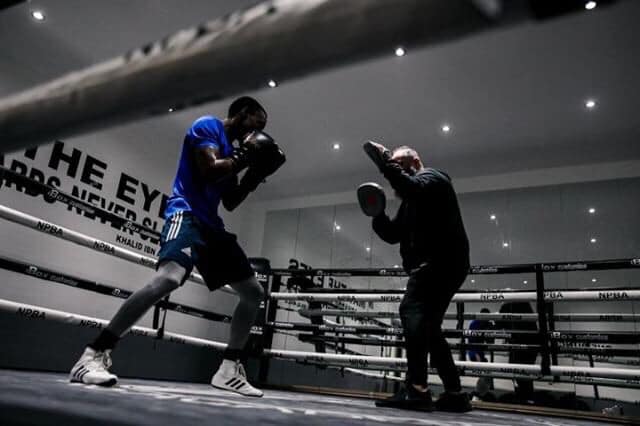
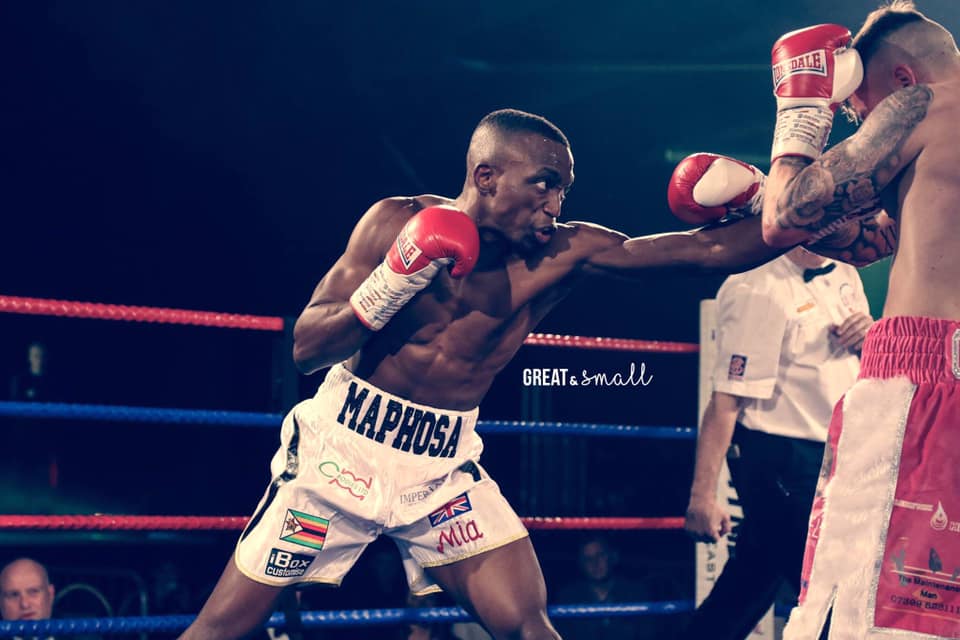
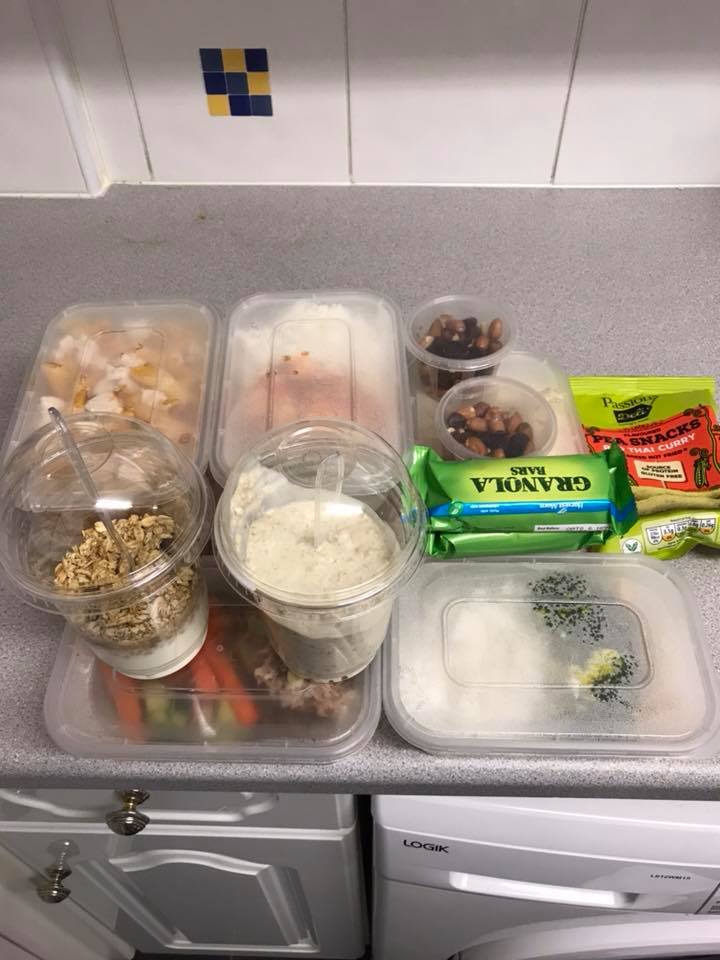
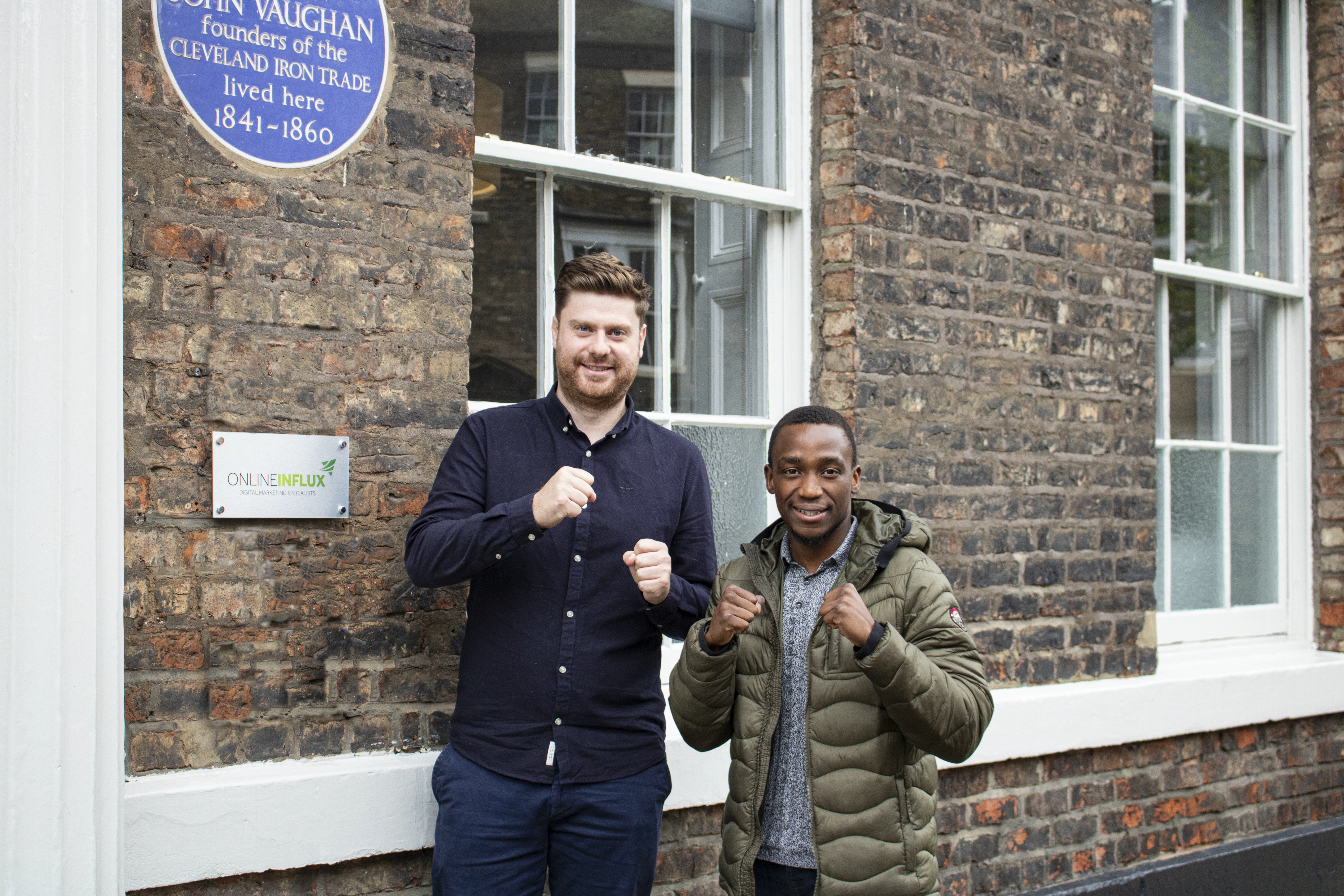


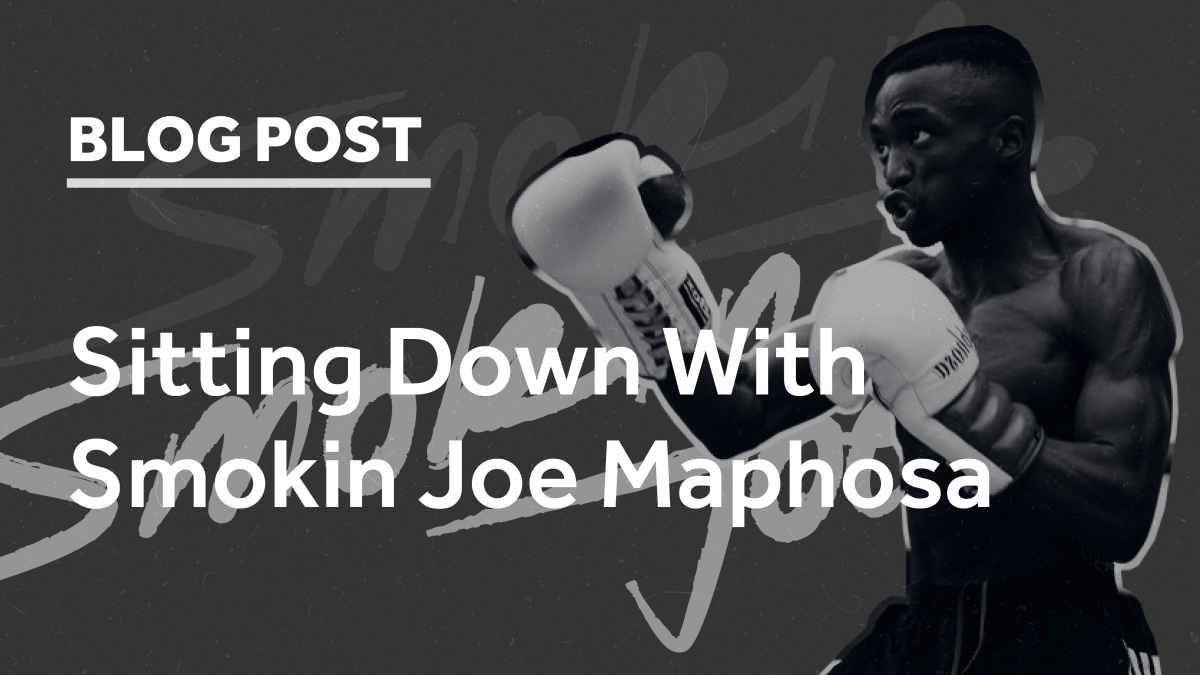
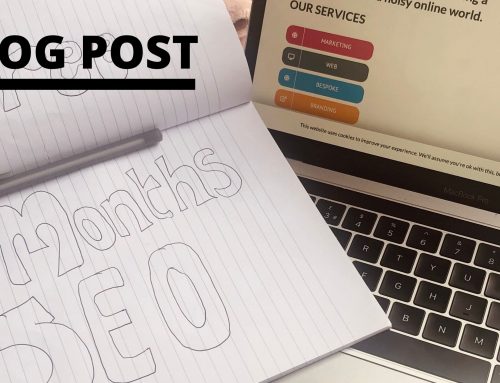
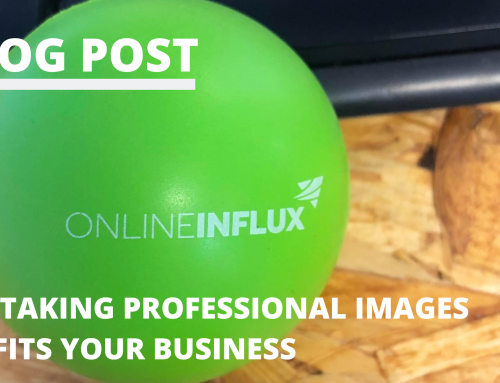



Leave A Comment